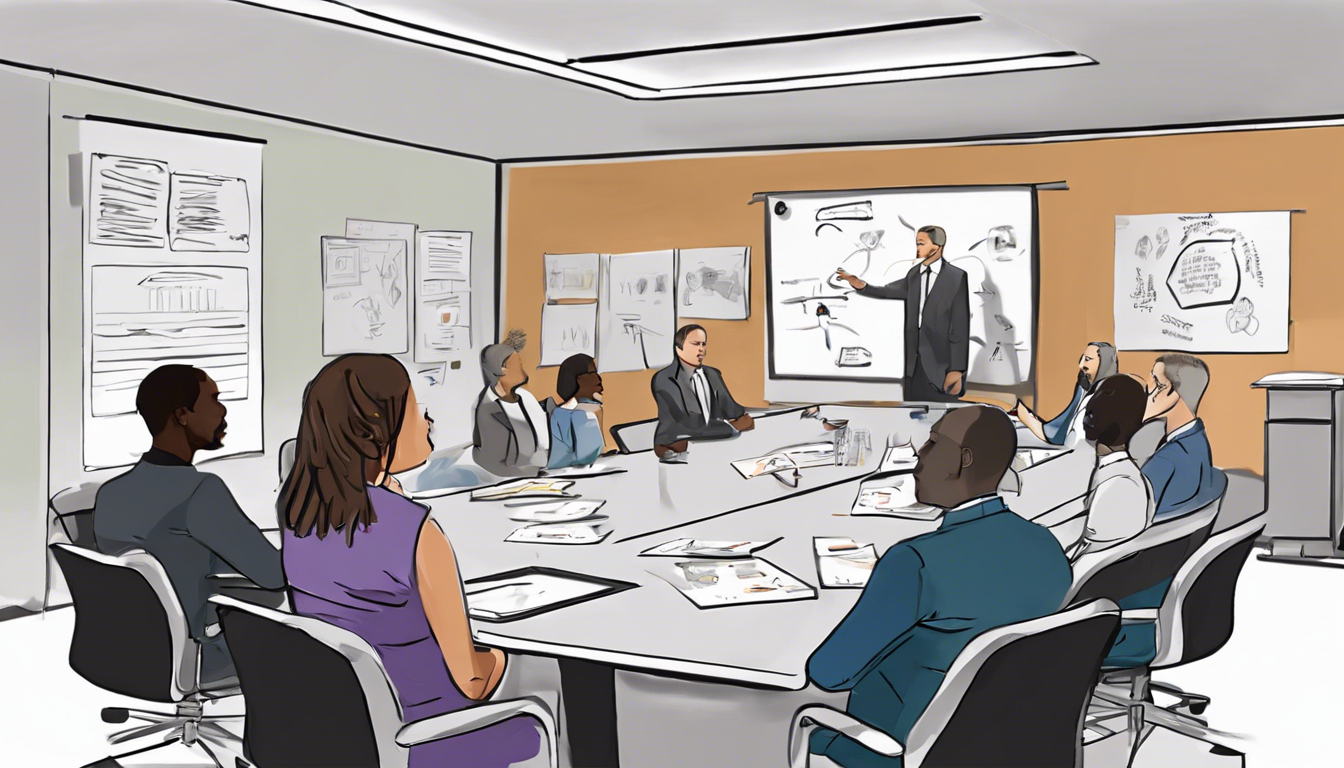Conflict management is a daily challenge for many leaders. These delicate situations, if not handled carefully, can have a significant impact on a team’s dynamics. To navigate these tumultuous waters effectively, it is essential to adopt appropriate conflict management strategies. This involves identifying the source of the problem, fostering dialogue, and implementing solutions that address the concerns of all parties involved. By cultivating an atmosphere of collaboration and trust, leaders can transform conflicts into genuine opportunities for growth and cohesion within their teams.

Conflict management is a major issue for any leader, as it influences not only team dynamics but also the overall performance of the organization. Conflicts can arise for various reasons, including differences of opinion, power struggles, or misunderstandings. Thus, it is essential for a leader to master effective strategies to turn these tensions into development opportunities.
First of all, open communication is a fundamentally important strategy. A leader must establish a climate where each team member feels comfortable expressing their concerns or disagreements. By encouraging honest communication, the leader can quickly identify the sources of conflict and work to resolve them before they escalate into more serious problems.
Next, implementing active listening is crucial. This involves paying particular attention to the words, tone, and body language of team members. By valuing what they say, the leader demonstrates respect and empathy. This creates an environment conducive to reconciliation, as those in disagreement are more inclined to collaborate if they feel heard and understood.
The strategy of collaboration, or the “win-win” approach, is also recommended. Rather than seeking to impose a solution, the leader should foster constructive dialogue to co-create solutions that satisfy all parties involved. This strengthens team cohesion by enhancing mutual trust and acting as a catalyst for creativity.
Furthermore, a leader can use mediation as a conflict management technique. By taking on the role of impartial third party, the leader can facilitate discussions between the disagreeing parties. This helps clarify misunderstandings, gather various viewpoints, and guide the group toward an acceptable solution for all. Mediation also encourages individual responsibility, as each member is involved in the resolution process.
Another effective approach is to establish a regular feedback system. This involves organizing regular meetings where team members can share their impressions regarding the group’s functioning. This process not only serves to resolve existing conflicts but also helps prevent new ones by allowing proactive expression of concerns.
For a leader, it is also vital to manage their own emotions. Conflict management often requires facing stressful situations. A leader must therefore develop their emotional resilience, which will help them approach conflicts without haste. Being able to remain calm in tense situations creates a space that encourages constructive discussions.
On the other hand, a leader must also be capable of identifying when it is necessary to adopt a more directive approach, for example, by using authoritative decision-making. This may be appropriate when the situation becomes too complicated or if disagreements persist. In such cases, by establishing a clear and swift decision, the leader can prevent the conflict from escalating further.
Finally, the leader must also engage in continuous training around conflict management skills. The professional world is continually evolving, and a savvy leader must stay updated on best practices and techniques in the field, thus ensuring strategic and effective conflict management.

FAQ: Conflict Management Strategies for Leaders
What is conflict management? Conflict management is a process that involves identifying, addressing, and resolving disagreements or disputes that may arise within a team.
Why is it important for a leader to manage conflicts? A good leader must manage conflicts to maintain a healthy work environment, foster collaboration, and ensure team productivity.
What are the main strategies for conflict management? The main strategies include active listening, open communication, seeking conciliatory solutions, and establishing a trusting environment.
How can a leader anticipate conflicts within their team? A leader can anticipate conflicts by being attentive to their team, monitoring interpersonal relationships, and regularly organizing open discussions.
What is the win-win method in conflict management? The win-win method involves seeking solutions that benefit all parties involved in the conflict, in order to foster a collaborative atmosphere.
How can feedback help resolve a conflict? Feedback helps clarify expectations, express concerns, and reinforce mutual understanding, which facilitates conflict resolution.
What are the signs of an evolving conflict? Signs include reduced communication among team members, visible tensions, passive-aggressive behaviors, and a lack of cooperation.
What tools can be used to manage conflicts? Tools include mediation techniques, teambuilding sessions, communication boards, and conflict management training.
How can one create an environment conducive to conflict resolution? By fostering a culture of openness, respecting everyone’s opinions, and establishing clear communication rules within the team.












